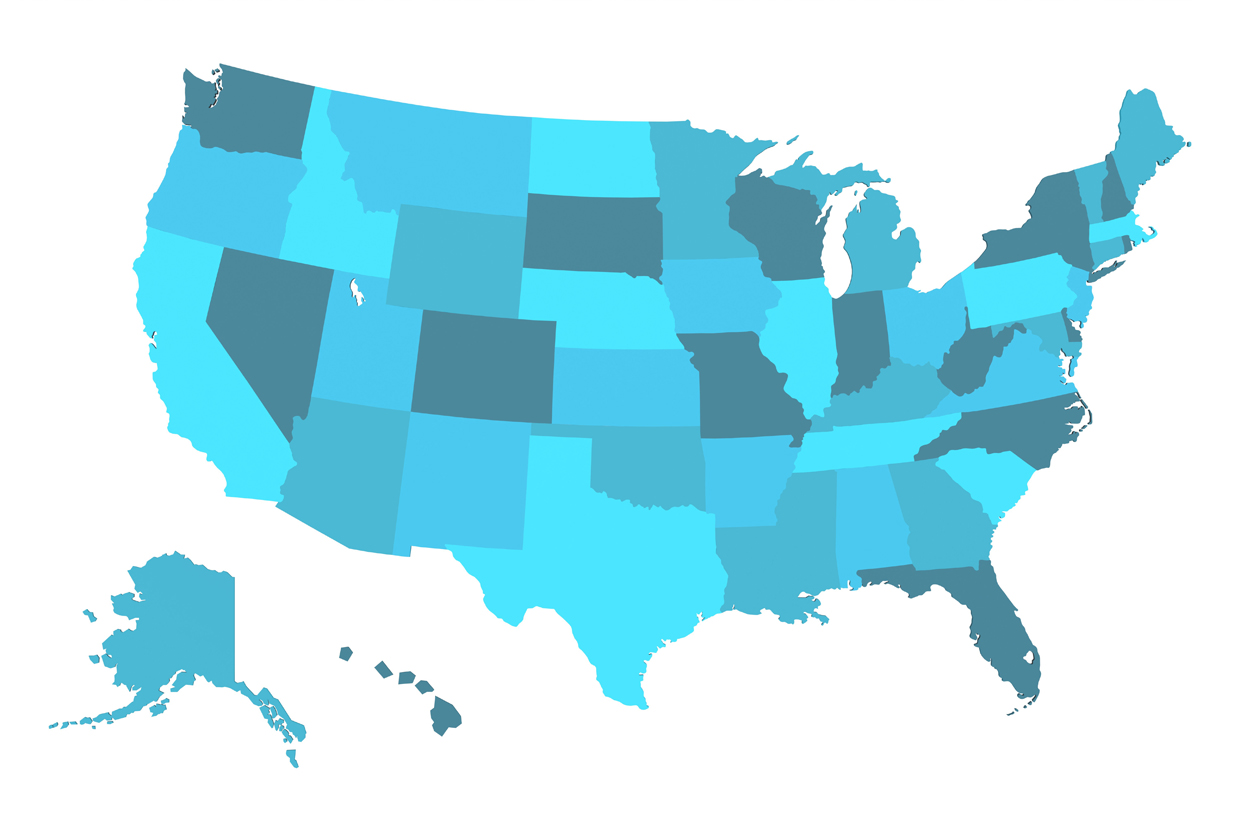April, 2020
Economic difficulties brought on by the COVID-19 crisis highlight the value of timely, accurate, consistent data to aid in the administering of loan programs like the small business loans in the CARES stimulus package, and in other relief programs we’re likely to see down the road. Congress has approved billions in funds for individuals and small businesses, and it’s become increasingly clear that greater standardization of data could vastly improve the efficiency of this program, and others like it, as we explain in one of our recent POV blog posts.
But in spite of the crisis, much business continues as usual. The SEC finalized rules that require XBRL for closed-end funds. The XBRL US Data Quality Committee published a new ruleset. XBRL US commented on proposals by the SEC regarding modernizing the MD&A; and by the Bureau of Economic Analysis on use of the LEI. In early May, XBRL US will host two webinars to help SEC filers in the second wave of the SEC roll-out for inline XBRL and cover page tagging. And finally, XBRL US is holding a members-only webinar to walk through the FERC Taxonomy, to help XBRL providers get ready for the rollout.

Members-only webinar to help XBRL providers understand the FERC taxonomy. The Federal Energy Regulatory Commission (FERC) recently completed the first release of their taxonomy and XBRL US will conduct a detailed demonstration of the taxonomy to help members begin to prepare their tools and services for the public utilities that will need to comply. Members should register to attend this 60 minute webinar on Thursday, April 30.

XBRL US recommends that the SEC require block tagging to modernize access to the MD&A. The SEC published a proposal to modernize the MD&A and other text-based information in corporate filings, including adding a new section for Critical Accounting Estimates. The proposal recommends eliminating certain sections deemed to be redundant because the reported facts are already available in XBRL format elsewhere in the filing. The proposal notes that because of XBRL tagging, duplicative sections can be eliminated, reducing filer workload.
The XBRL US letter explains that given the importance of the MD&A, and the fact that the SEC’s Division of Corporation Finance has already provided guidance outlining topical categories that filers should address in their MD&A (i.e., Results from Operations, Liquidity and Capital Resources, and Off-balance Sheet Arrangements, among others), XBRL block tagging would increase the usefulness of the MD&A and require little effort on the part of filers. Block tagging could also be adapted to other kinds of information such as Risk Factors, and Environmental Social Governance (ESG) data. Data users would gain from the ability to automate the extraction of key pieces of text for a single company over time, or for comparisons of multiple companies.
XBRL US supports use of the LEI in the BEA proposal on Form BE-180. The Bureau of Economic Analysis proposed that the LEI be required to be reported in the mandatory Benchmark Survey of Financial Services Transactions between U.S. Financial Services Providers and Foreign Persons (BE-180), for those entities that have an LEI. XBRL US supports this proposal. Our letter went on to suggest that XBRL be used for financial data reported to the BEA.

SEC mandates XBRL for business development companies and other closed-end investment companies. The final rule, published on April 8, requires BDCs to submit financials using iXBRL, and requires both BDCs and other registered closed-end funds to use iXBRL in their Form N-2 registration statements. The rule is effective August 1, 2020 with the first affected filers required to comply starting August 1, 2022. The SEC published a draft Closed-End Fund (CEF) Taxonomy for a 90-day public review period. The SEC published an announcement and fact sheet to further explain the rule.

The SEC finalized a separate rule allowing significant flexibility in reporting by guarantors and issuers of guaranteed securities. The final rule gives parent companies the flexibility to provide certain disclosures inside or outside of the consolidated financial statements which means these disclosures may or may not be reported in structured (XBRL) format.

XBRL US proposes standards for more efficient loan administration during COVID-19 crisis. With thousands of small businesses at risk during the pandemic, the U.S. Congress has committed billions in relief funds through the CARES Act, and other programs. To effectively administer this program, for timely delivery of funds, and effective tracking of disbursements and performance, standards must be implemented, as explained in this XBRL US fact sheet. What’s needed is a single set of standards-based definitions to collect, process, and analyze loan and grants data for borrowers, governments and lenders. Financial data standards can help build an infrastructure to efficiently, rapidly, cost-effectively support governments and businesses. To make that point, XBRL US developed a Loan Application Taxonomy which represents the Small Business Administration’s Economic Injury Disaster Loan (EIDL) application (although it could be adapted to any loan program), and an Excel-based tool that could be used to collect applicant data. Only with standards can government agencies respond quickly and efficiently, and ensure that all funds reach the small businesses that need them.

USA Facts, DFIN and XBRL US collaborate on XBRL tagging of a 10-K for the U.S. government. USAFacts.org is a nonprofit dedicated to helping citizens, the media, government and industry obtain deeper insights into the financial health of the U.S. government. To demonstrate the importance of timely government data, they have been preparing a “U.S. Government 10-K” for several years, arduously collecting financial data from numerous sources to paint a picture. The latest 10-K represents data from 2017, a clear sign that timeliness is an issue when it comes to government data.
This year, to demonstrate the value of greater timeliness and automation, USAFacts partnered with Donnelley Financial Services (DFIN) and XBRL US to XBRL-tag the U.S. Government 10-K, using a combination of concepts from the US GAAP Taxonomy and the CAFR (Comprehensive Annual Financial Report) Taxonomy. The CAFR Taxonomy was created through the work of the XBRL US Standard Government Reporting Working Group and today represents 7 financial statements, 2 footnotes, and several schedules from the Single Audit Package. The Single Audit Package is required to be rendered in machine-readable format starting in 2022, per the passage of the GREAT Act which requires data standards for grants information. Read about the project in this blog post.

XBRL US Activities
Upcoming Webinars
- iXBRL & Cover Page Tagging: Get Ready, Phase 2 Filers!, May 6 at 3 PM EDT (75 minutes). Register: https://xbrl.us/events/200506
- Cover Page Tagging for Phase 2 Filers, May 13 at 3PM EDT. Register: https://xbrl.us/events/200513
Replays
- FASB Requirements for Extensible Enumerations in 2021 US GAAP Taxonomy, April 13 – https://xbrl.us/events/200413
- Data Analytics to Set Policy, Evaluate Investments & More, April 22 – https://xbrl.us/events/200422
XBRL US Data Quality Committee Public Reviews
- Variable Interest Entities Guidance, comment period closes May 1 – https://xbrl.us/guid-vie
- Version 12 of the DQC Rules, comment period closes June 1 – https://xbrl.us/public-review
Get information about the Committee: https://xbrl.us/dqc
Upcoming XBRL US Steering Committee and Other Member Meetings
- The Domain Steering Committee meeting will be held Thursday, May 7 at 3 PM EDT.
- The Communications Steering Committee will be held Tuesday, May 19 at 3 PM EDT.
XBRL US Members are encouraged to attend and get involved. Email membership@xbrl.us for details.
 XBRL US Members are committed to engaging and collaborating with other members, contributing to the standard through involvement of their teams, and striving to build awareness and educate the market. Members of XBRL US represent the full range of the business reporting supply chain.
XBRL US Members are committed to engaging and collaborating with other members, contributing to the standard through involvement of their teams, and striving to build awareness and educate the market. Members of XBRL US represent the full range of the business reporting supply chain.
Not yet an XBRL US member? Maybe it’s time to consider joining XBRL US for yourself ($55 – $500/ year) or your organization (fees vary). Find out more about the benefits of membership and how to become involved by visiting https://xbrl.us/benefits.






Comment
You must be logged in to post a comment.